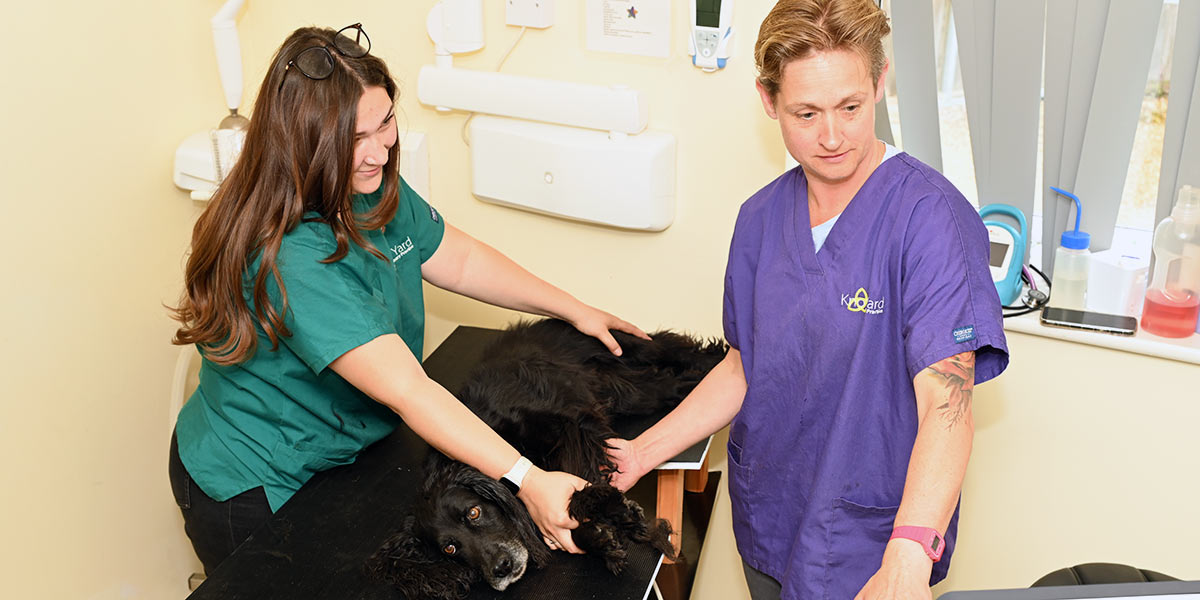Diagnostic facilities for small animals at our vets practice in Watton, Norfolk
We have a range of diagnostic equipment at our vets practice in Watton to enable us to investigate any small animal health issues.
Our facilities include:
- Digital X-ray suite
- Ultrasound scanner
- ECG machine
- Endoscope
- Dental digital X-ray
- Dental machines
- Blood, urine and tissue sampling
- Blood pressure monitoring machines
Radiography
We have a digital X-ray (radiography) suite which means that any X-rays your pet requires can be developed immediately and interpreted on the same day. In some cases we need to send X-rays away to specialists for a second opinion but we will always inform you of the results and any further action required as soon as we know.
Your pet will need to be sedated or anaesthetised by our skilled team to allow us to take an X-ray on the day.
Ultrasonography
The practice has an ultrasound scanner that can be used for investigation of a variety of problems. Ultrasound is a method of looking at the internal soft tissue organs of the body. As for humans we also use ultrasound to monitor pregnancy but more commonly we use it to look at the structure of the internal organs. This is usually undertaken as part of more extensive investigations into an illness and will often be accompanied by blood tests, radiographs (X-rays) and possibly other procedures.
Your pet will not normally need to be sedated or anaesthetised when having an ultrasound scan allthough some pets will benefit from mild sedation so they can remain relaxed and motionless for the procedure.
Electrocardiography
We have a modern portable electrocardiography (ECG) machine which can be used to investigate heart disease in all small animals. The ECG machine can also be used to monitor high risk patients during anaesthesia.
Endoscopy
Endoscopy uses cameras and lenses to examine internal body structures of an animal which would otherwise not be visible. This usually involves inserting the endoscope through a body orifice to examine the inside of a structure such as the oesophagus, stomach, proximal duodenum, rectum, nose and trachea.
Most animals will require a general anaesthetic for endoscopy as they will not tolerate the insertion of the endoscope.
We can use an endoscope to diagnose disease (via biopsies) or even to remove inhaled or ingested foreign bodies.
It can also be used in conjunction with our digital X-ray or ultrasound scanner to help diagnose what is wrong with your pet.
Dentistry
Dental work on your pet can be advised for a number of reasons. There may be a specific lesion in the mouth which is causing pain and/or infection, or there may be a general accumulation of tartar which may result in periodontal disease.
Unfortunately oral pain often goes unnoticed in pets and even when they are in considerable discomfort most animals will continue to eat. Dental disease has been shown to allow bacteria in to the system and potentially to cause infections elsewhere in the body.
Your pet will need to be anaesthetised by our skilled team to allow us to perform any dental procedures.
Laboratory
Many urine samples and blood smears can be analysed in our practice although it is often necessary to send some tissue samples and tests to our outside laboratory. We usually receive all results within 2/3 days but we will advise you at the time of the sample being taken when you can expect to receive a call from us.
Blood pressure
Measuring blood pressure is becoming increasingly important in the diagnosis of dog and cat disease. In particular cats with kidney failure and hyperthyroidism, both of which are common in older cats.
Please contact us for more details or to make an appointment.









